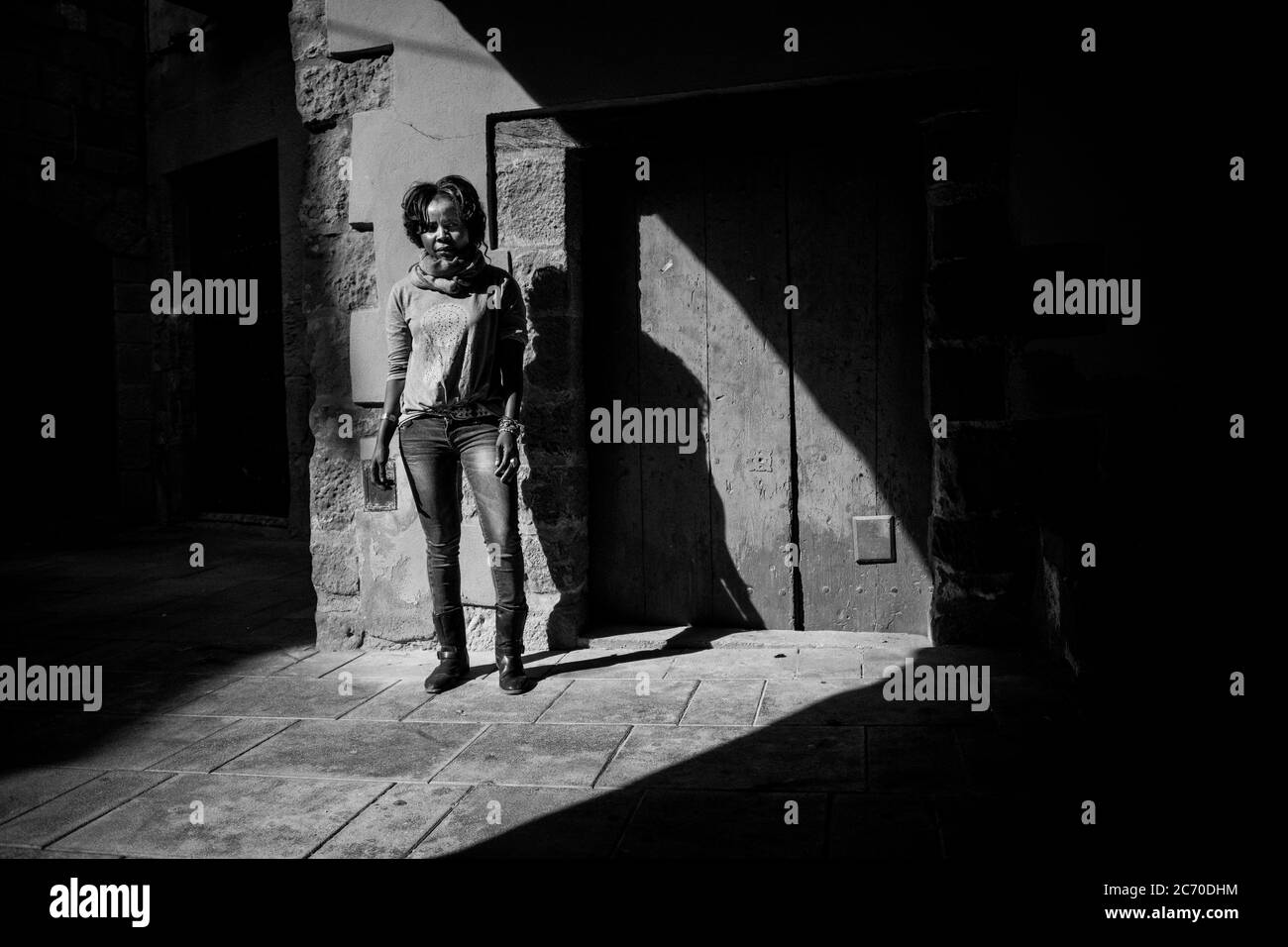Portrait of Sofia Busky. Date: 24/10/2017. Photo: Xabier Mikel Laburu. Sofia owns a bar in Sanauja, originary from Nigeria, but living in Spain since 2003, she is a moderate independentist. She would wish to see the conflict soved through the negotiation of both sides. She also recognizes that the delicate situation are creating two ideological sides which are starting to show their differences and being mildly hostile one with the other. She personally is going to vote for independence since she believes it is the best for Catalonia.

Image details
Contributor:
Xabier Mikel Laburu / Alamy Stock PhotoImage ID:
2C70DHMFile size:
68.7 MB (3 MB Compressed download)Releases:
Model - no | Property - noDo I need a release?Dimensions:
6000 x 4000 px | 50.8 x 33.9 cm | 20 x 13.3 inches | 300dpiDate taken:
24 October 2017Location:
SanaujaMore information:
This image could have imperfections as it’s either historical or reportage.
Beyond the boundaries of Barcelona and the metropolitan area, between the mountains and the far west plains, in those stone and brick villages where the ancient traditions are still visible behind the veil of modernity, is where one can find the hard core sentiment of Catalan nationalism. Villages where the industrial revolution seems to have forgotten about their existence long time ago and their economies depend mainly of traditional farming. Villages which, not so long ago, started to embrace city refugees, whom, with their new perspectives, at times have created a symbiotic relationship between the old order and a new one which is pushing hard. A world of tractors and cellphones, cows and laptops, sinuous roads and Internet, is also the home of a nationalism that has switched from a comfortable traditionalism to a somewhat more revolutionary political thought. Situated on the north-east of the Iberian peninsula, Catalonia occupies a territory similar to Holland and has a bit more than 7.5 million inhabitants. Close to 70% of its territory is considered rural and agricultural, but following the XX century migrations to the large cities where industry and commerce thrived, these regions only account for about the 30% of the total population today. But this demographic balance is key to understand what has happened after that former Catalan President, Artur Mas, whom as a captain of a ship that was about to start a long and uncertain voyage, would pronounce in 2012 the words: “We have put route to Ithaca”, as a clear allusion to Homer's epic poem and the hard-shifts that the Catalans would have to face for independence, an independence which still seems hidden behind the horizon and where no one seems capable to tell if even the prow is pointing in the right direction.